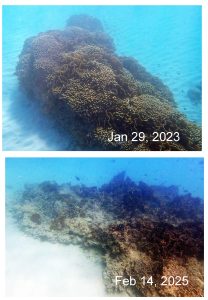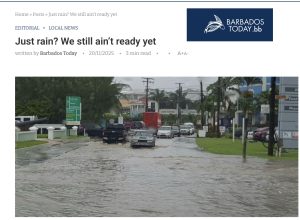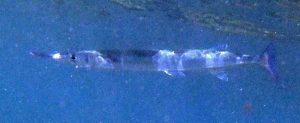
“Recent changes in reef zonation of western Atlantic coral reefs, brought about by lack of recruitment of elkhorn (orange), staghorn (yellow), and massive boulder corals. Without these key reef builders, the reefs have already measurably eroded. Image credit: Rashpal Dhilon. Adapted from ref. 6, which is licensed under CC BY 4.0.” (Fig 1 in PNAS paper)
From the Introduction to this paper in PNAS, published January 22, 2026:
“At a conservation meeting in Miami, Florida, last month aimed at discussing the plight of local coral reefs, a previously unthinkable idea was on the agenda. Scientists, legal scholars, policymakers, ethicists, and coral conservation practitioners explored whether the situation is now so dire that we should consider shipping coral species from the Indo-Pacific region thousands of miles away to be planted in western Atlantic waters. Based on the best available information, we believe the answer is yes: Western Atlantic reefs are in terminal decline, and we must be open to researching even the most radical solutions to save them.”
COMMENT (david p).
Wow, def. something in the back of many expert’s minds, ‘first serious proposal. I think the controversial word is “only”, Continue reading










